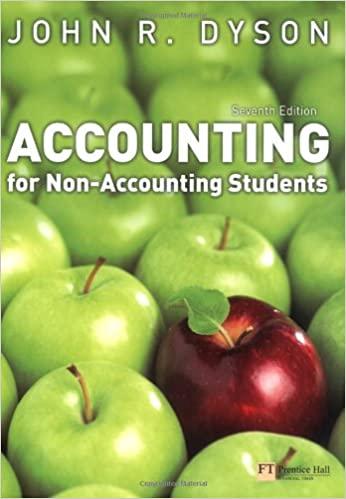Question
Think about a major life transition that you have gone through (e.g., moving to a new city, starting college, getting a job, getting married). Did
Think about a major life transition that you have gone through (e.g., moving to a new city, starting college, getting a job, getting married). Did you feel the need to buy anything before, during, or after your transition? Life transitions necessitate leaving the past to embrace a new stage in life and almost always involve interactions within the marketplace. For instance, think of all of the items a consumer typically purchases while planning a wedding or preparing to have a baby. Some past research suggests that purchases help consumers cope through their transitions. For instance, a new pair of jeans may help a teenager feel more prepared to start high-school. However, other research suggests that transitions often lead to anxiety and emotional instability, and therefore consumers often don't make the best purchases decisions. For instance, new mothers may overconsume at a great emotional and financial expense. Because of these mixed research findings, it is important to understand the impact that material goods play on consumers' quality of life during life transitions. To clarify the aforementioned relationship, Jennifer Siemens, also at Clemson University, and I have investigated the role of materialism on quality of life for transitioning consumers. We find that consumers who attach a high level of importance to worldly possessions have a decreased quality of life during major life transitions. That is, while materialistic consumers may hope that purchases will help them through a transition, a more material-reliant attitude ultimately harms the consumer. Interestingly, we also find that personal control can also help us better understand the role of materialism and quality of life during a transition. Specifically, highly materialistic consumers feel like their transition is out of their control, and therefore ultimately have a lowered quality of life. Additionally, less materialistic consumers feel more control of their transition and in return have a higher quality of life. Given these results, we recommend that transitioning consumers closely examine their consumption during life transitions and opt for less, especially if they notice that their purchases are making them feel less in-control or more stressed out than happy. For instance, is inviting 100 guests to your wedding making you and your partner feel more stressed than happy? Perhaps it's time to consider a different wedding plan! We also recommend that marketers carefully assess the role that they play in consumer transitions. Is there information, guidelines or advice you can provide the consumer to help them genuinely feel in control of their transition? If so, this could be a great time to lend assistance and establish a trusting and meaningful relationship with your consumer during this stressful time. In which way(s) is materialism problematic to consumers and society?
Step by Step Solution
There are 3 Steps involved in it
Step: 1

Get Instant Access to Expert-Tailored Solutions
See step-by-step solutions with expert insights and AI powered tools for academic success
Step: 2

Step: 3

Ace Your Homework with AI
Get the answers you need in no time with our AI-driven, step-by-step assistance
Get Started


